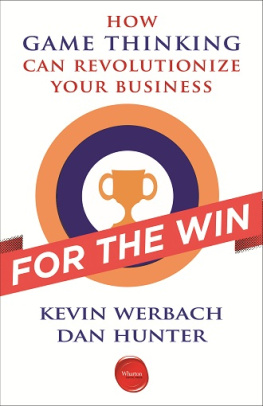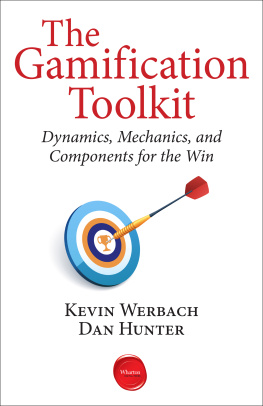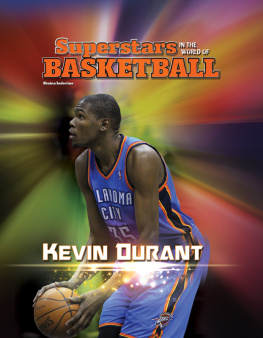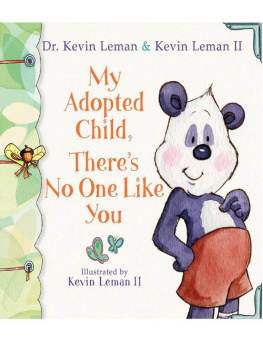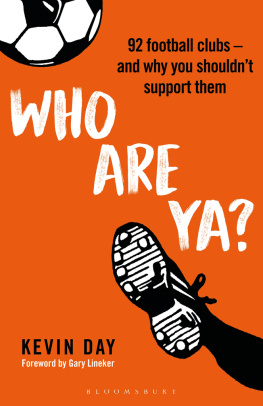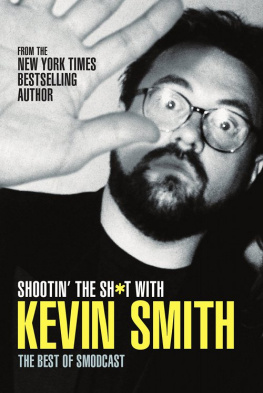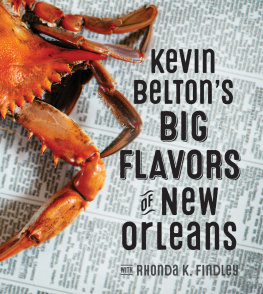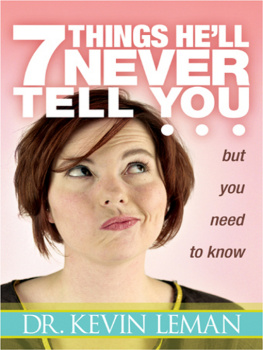Kevin Werbach - For the Win
Here you can read online Kevin Werbach - For the Win full text of the book (entire story) in english for free. Download pdf and epub, get meaning, cover and reviews about this ebook. publisher: Wharton School Press, genre: Business. Description of the work, (preface) as well as reviews are available. Best literature library LitArk.com created for fans of good reading and offers a wide selection of genres:
Romance novel
Science fiction
Adventure
Detective
Science
History
Home and family
Prose
Art
Politics
Computer
Non-fiction
Religion
Business
Children
Humor
Choose a favorite category and find really read worthwhile books. Enjoy immersion in the world of imagination, feel the emotions of the characters or learn something new for yourself, make an fascinating discovery.

- Book:For the Win
- Author:
- Publisher:Wharton School Press
- Genre:
- Rating:3 / 5
- Favourites:Add to favourites
- Your mark:
- 60
- 1
- 2
- 3
- 4
- 5
For the Win: summary, description and annotation
We offer to read an annotation, description, summary or preface (depends on what the author of the book "For the Win" wrote himself). If you haven't found the necessary information about the book — write in the comments, we will try to find it.
For the Win — read online for free the complete book (whole text) full work
Below is the text of the book, divided by pages. System saving the place of the last page read, allows you to conveniently read the book "For the Win" online for free, without having to search again every time where you left off. Put a bookmark, and you can go to the page where you finished reading at any time.
Font size:
Interval:
Bookmark:
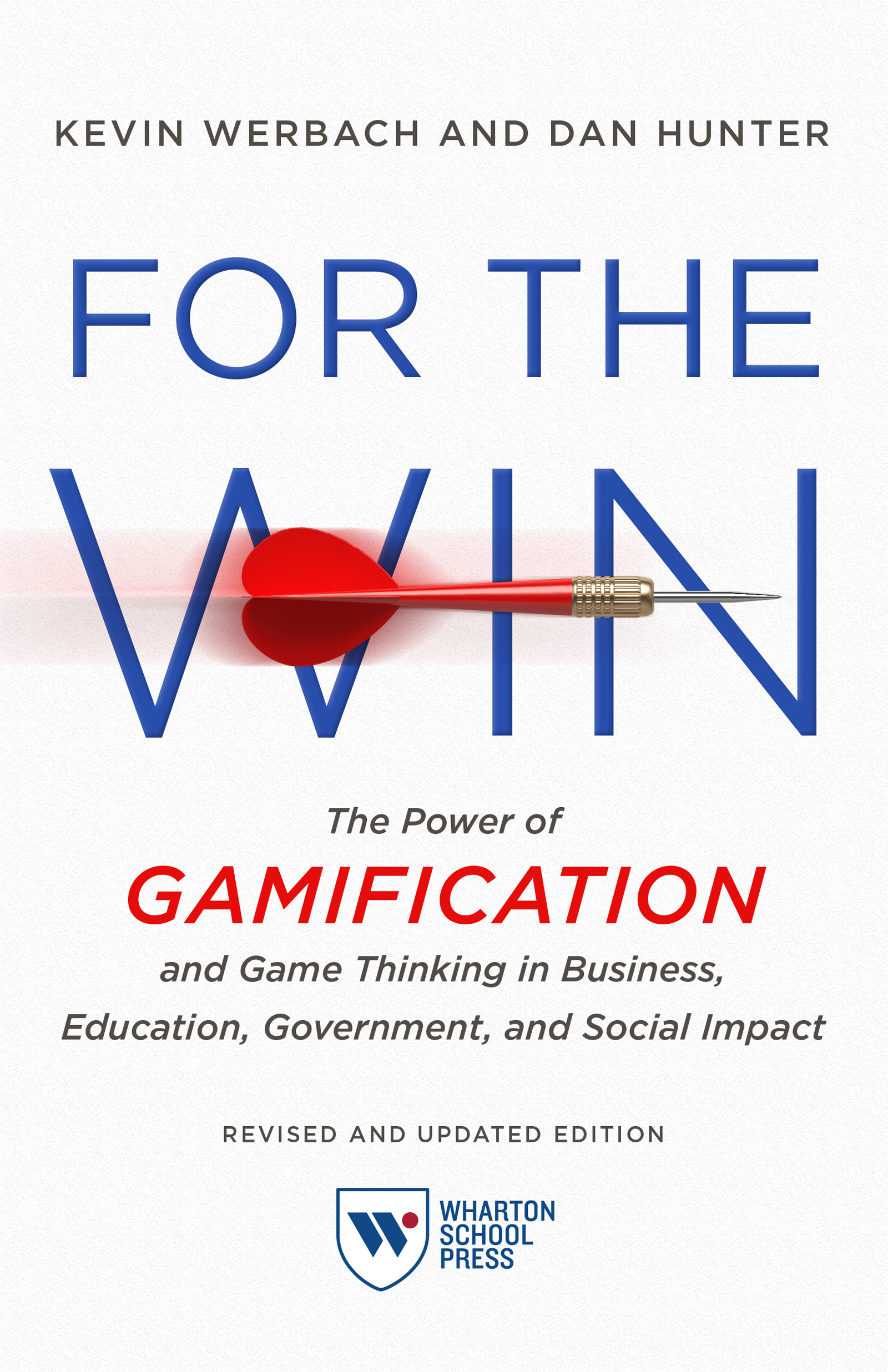

2020, 2012 by Kevin Werbach and Dan Hunter
Published by Wharton School Press
The Wharton School
University of Pennsylvania
3620 Locust Walk
300 Steinberg Hall-Dietrich Hall
Philadelphia, PA 19104
Email:
Website: wsp.wharton.upenn.edu
All rights reserved. No part of this book may be reproduced, in any form or by any means, without written permission of the publisher. Company and product names mentioned herein are the trademarks or registered trademarks of their respective owners.
Ebook ISBN: 978-1-61363-104-1
Paperback ISBN: 978-1-61363-105-8
For Nate and ElenaDH
For Eli and EstherKW
Why Cant Life Be Fun?
Each year in the United States alone, almost 800,000 people suffer strokes, according to the Centers for Disease Control and Prevention. For hundreds of thousands of people fortunate to survive, the road to recovery is long, cumbersome, and at times demotivating.
A South Koreanheadquartered company, Neofect, is aiming to change that. One of its products is the Rapael Smart Glove. It prompts patients to move their fingers, hands, and wrists, with a twist. Theyre not just moving their fingerson the screen, theyre playing catch, fishing, or refilling their wine glasses. Over time, patients progress to different difficulty levels in their rehabilitation process.
Its not a video game, exactly. No company would market a game that involves, say, chopping food, and nothing else. Boring. Yet even such dull repetition can feel motivating and fun (sort of) when the feedback, rewards, and structure of the experience are designed right. And thats a big deal when the point isnt to sell games but to rehabilitate patients.
This is a classic example of the now-established practice of gamification. In this case, at least one study has found significant benefit pairing game-assisted therapies with more conventional methods. In addition to the smart glove, Neofect has developed a smart board, a pegboard, and more.
For thousands of years, weve created things called games that tap the tremendous psychic power of fun. A well-designed game is a guided missile to the motivational heart of the human psyche. Applying the lessons that games can teach could change your business, the way you learn or teach, even your life. The premise of this book is that fun is an extraordinarily valuable tool to address serious pursuits like marketing, productivity enhancement, education, innovation, customer engagement, human resources, and sustainability. We are not talking about fleeting enjoymentrather, the deep fun that comes from extended interaction with well-designed games.
It turns out that games can be used in a wide range of settings. Consider the following set of scenarios: A management consultant walks into her supervisors office to announce shes jumping ship to a competitor. Sure, the firm paid her a hefty salary for the past five years, but one consulting firm is the same as another, right?
A student struggles to pay attention to the assignment for tomorrows class. He knows the grade is important, but the material just seems pointless. He does the work, but only because he has to, not because he cares about what hes studying.
A mother wheels her shopping cart through the supermarket aisles, as her toddler becomes unruly in the child seat. She grabs products from the shelves, usually picking the familiar brands without much thought.
Disengaged, demotivated, disempowered, and disconnected. Isnt that how employees, students, and customers always areand always will be?
Now imagine a different world. The consultant basks in the status boost when her team tops the firms internal leaderboard. The student feels rewardedmentally and by his instructorwhen he reaches the next level and unlocks new material. And the harried mother feels a jolt of pure joy when she earns a coveted badge for buying the ingredients for a nutritious meal (and realizes it costs less than that packaged junk she bought before).
By at least some measures, the people in the first vignettes are doing their jobs effectively. Perhaps we want our leaders to be ruthless, our students to mechanically complete their work, and our consumers to be buying unthinkingly. But an exclusive focus on short-term factors will produce short-term benefits at best, while risking much larger long-term costs. These individuals are not engaged: They are phoning it in. Its hard to imagine them or any of the organizations they interact with producing the next great innovation, viral hit product, or visionary CEO. And no one seems to be having much fun. But whats fun got to do with business (or life), anyway?
A lot.
Gamification can change lives for the better. Weve told you a bit about Neofect. Well introduce you to SuperBetter, which demonstrated significant results treating depression, concussion symptoms, and the mental health harms of the COVID-19 pandemic through game thinking. Youre almost certainly already aware of fitness tracking systems that encourage users to get up and walk thousands of steps, motivated by a simple buzz on their wrists or the digital badge when they hit their target. Many thousands of newly healthy people can attest to the fact that games make a difference.
At the other end of the spectrum, the ride-hailing giant Uber once used gamification to persuade its drivers to work longer hours than they otherwise wanted to. Influenced by the same kinds of techniques used in video games, drivers were psychologically manipulated to work harder, to meet goals that were in the interests of the company, not those of the drivers. The backlash, when it came, was fierce. Later in this book well show how similarly serious ethical issuestogether with public relations disastershave arisen as a result of the gamification efforts of Disney, various governments, and the fintech start-up Robinhood.
The story of gamification isnt fun and games by any means. Its really serious. When used carefully and thoughtfully, gamification produces great outcomes for users, in ways that are hard to replicate through other methods. Other times, companies misuse the guided missile of gamification to have people work and do things in ways that are against their self-interest, and are clearly worrying. Gamification has even been implicated in suicide.
In the remainder of this book, we will take you through research and examples to show you how, why, and when gamification works, and guide you in developing these methods for your purposes. And just as importantly, well show you what not to do with gamification.
In 2012, when the first edition of this book appeared, making the real world more game-like still sounded far-fetched. Then on July 6, 2016, a tiny subsidiary of Google released an augmented reality mobile game. By the end of the year, Pokmon Go was downloaded half a billion times. By 2018, it had 150 million monthly active users worldwide. Pokmon Go turned millions of ordinary people walking around their neighborhoods into hunters and trainers of tiny monsters, which magically appeared on their smartphone screens. Pokmon Go isnt gamificationits an actual gamebut it highlights how technology can fuse game-like experiences with quotidian reality. What if those same techniques were applied to other purposes?
Font size:
Interval:
Bookmark:
Similar books «For the Win»
Look at similar books to For the Win. We have selected literature similar in name and meaning in the hope of providing readers with more options to find new, interesting, not yet read works.
Discussion, reviews of the book For the Win and just readers' own opinions. Leave your comments, write what you think about the work, its meaning or the main characters. Specify what exactly you liked and what you didn't like, and why you think so.

